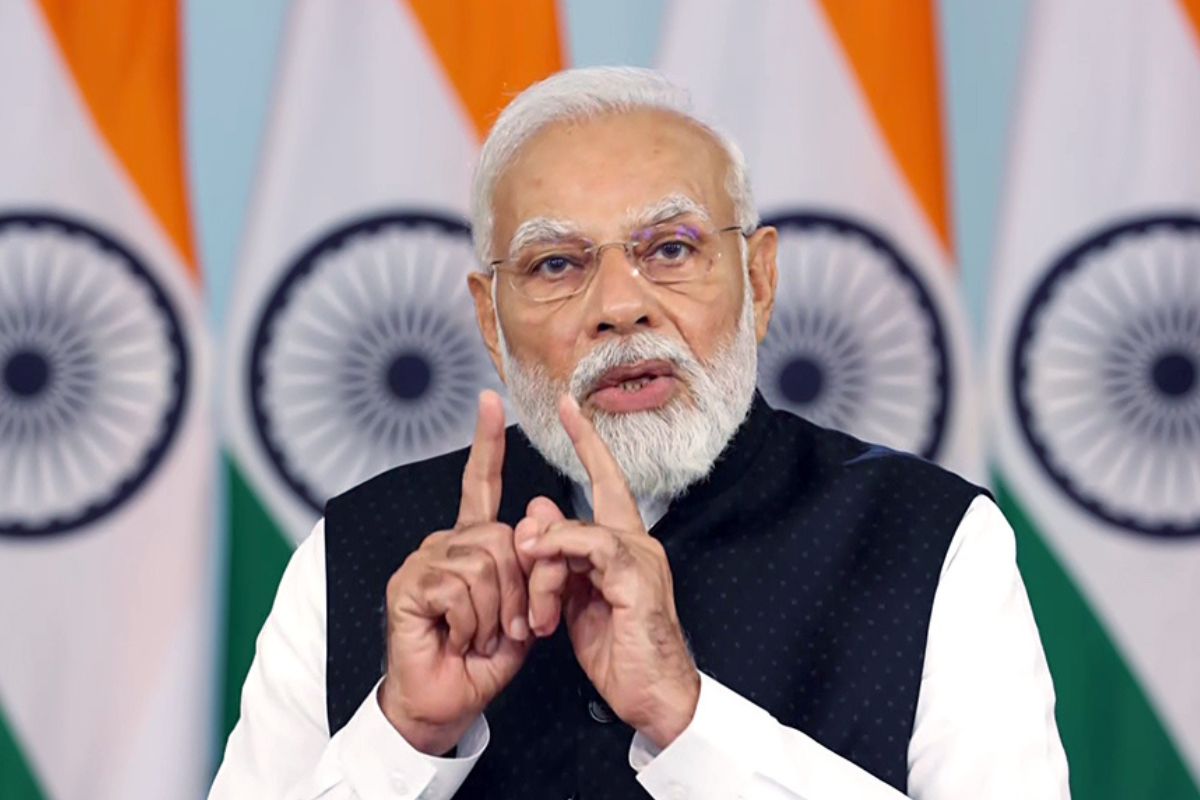The power of social media marketing: Igniting consumer engagement and brand awareness
Unlock the power of social media marketing to ignite consumer engagement and boost brand awareness. Discover the keys to success in today's digital landscape.
In a tweet to mark his government’s nine years in office, Modi assured the campaign for improving the ease of doing business would continue.

Prime Minister Narendra Modi (Photo: ANI)
Prime Minister Narendra Modi on Wednesday said the last nine years of his government had witnessed ”futuristic reforms” which not only improved ‘Ease of Doing Business’ but also encouraged a spirit of enterprise among the youth.
In a tweet to mark his government’s nine years in office, the prime minister assured the campaign for improving the ease of doing business would continue saying “We will keep working in this direction to boost growth and innovation.”
One of the key aspects of improving the ease of doing business in India was simplification of business registration procedures. The introduction of online registration portals, such as the Ministry of Corporate Affairs’ Spice + and the Goods and Services Tax (GST) portal have reduced paperwork and minimised the time required to establish a company.
Advertisement
This streamlined process has encouraged entrepreneurship and facilitated the growth of new businesses in the country. Easy and timely environmental and other approvals have also resulted in reduction in time and effort, it is stated.
The implementation of the Goods and Services Tax (GST), too, brought about a significant transformation in the taxation landscape. The introduction of a unified tax system eliminated multiple layers of taxes and streamlined compliance procedures.
GST has not only reduced the tax burden on corporates, but also enhanced transparency and reduced corruption. The simplified taxation system has encouraged corporates to expand their operations, invest in new ventures, and fuel economic growth.
“The PM Modi-led government aims to end tax terrorism and increase efficiency,” says a document. For FY 2022–23, the GST collections have surpassed Rs 18 lakh crore, with a YOY growth of 22 per cent. This is the highest ever revenue collected for indirect taxes, showing confidence of taxpayers.
The government has introduced several investor-friendly policies to attract foreign direct investment (FDI) and promote domestic investment. Initiatives such as “Make in India,” “Start-up India,” and “Digital India” have created a favourable investment climate by offering incentives, and easing regulations. These policies have played a significant role in encouraging corporates to invest in India, contribute to employment generation, and foster innovation.
Prior to 2018, the Companies Act, 2013, used to view almost all violations under its ambit through the lens of criminal law. This led to the overburdening of courts with criminal cases, adversely impacting the ease of doing business.
The government decided to introduce civil liabilities involving in-house adjudication, for dealing with simple defaults that do not involve any fraud or where the nature of the lapse is purely procedural.
The government also rolled out the Companies Fresh Start Scheme (CFSS) in 2020 and allowed companies to correct any old defaults related to the filing of documents without levying any additional fees. Post-reform, more than 1,000 default cases were decided without resorting to court cases, and more than 4,00,000 companies used the Companies Fresh Start Scheme to rectify filing defaults and avoid penalties under the Companies Act.
The impact of the ease of doing business in India has been tremendous. Global investment in India increased from USD 36.05 billion in 2013–14 to USD 84.84 billion in FY 2021–22, which is an increase of 135 per cent.
In exports, there is a new growth story in the making. There has been a huge push for made-in India toys. The export of toys has increased the government’s emphasis on Make in India. There is tremendous focus on Atmanirbharta, and the PLI scheme has started bearing fruit.
The Insolvency and Bankruptcy Code (IBC) has revolutionised India’s insolvency framework, providing a swift and efficient resolution mechanism for distressed corporates. The Insolvency Code has resulted in high recovery rates, and during 2017–22, Rs 2.5 lakh crore was recovered through the IBC.
India’s digital transformation too had a profound impact on the ease of doing business for corporates. In 2022-23 alone, a total transaction of Rs 139.20 lakh crore took place through UPI, as India now becomes a world leader in digital payments, with 46 per cent of the world’s digital payments taking place in India.
The government has taken revolutionary steps in the strengthening of Intellectual Property Rights with the launch of National Intellectual Property Awareness Mission (NIPAM) to achieve a target of training one million students in Intellectual Property (IP) awareness.
Advertisement